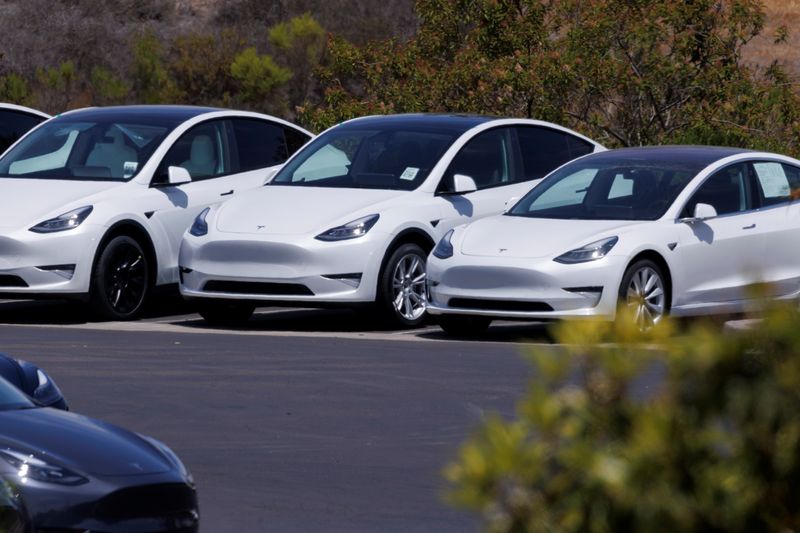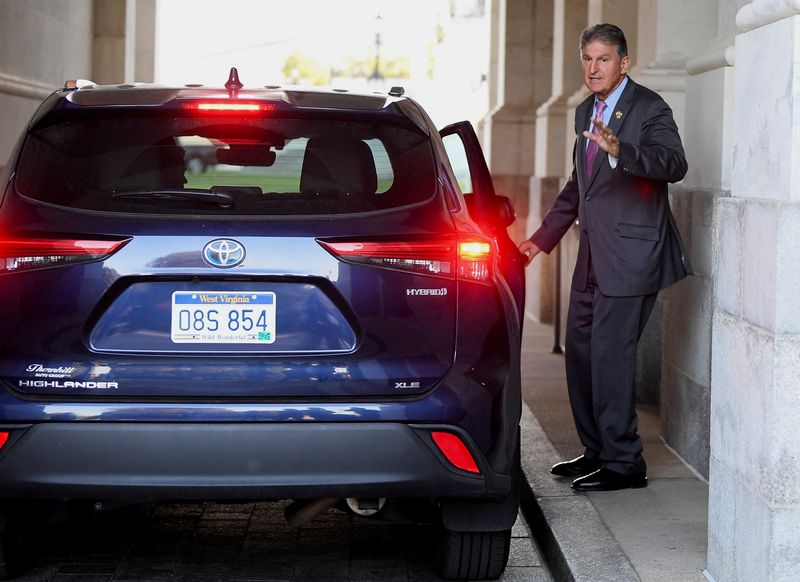By David Shepardson
WASHINGTON (Reuters) -U.S. Senate Energy and Natural Resources Committee chair Joe Manchin on Wednesday introduced legislation that would immediately impose battery sourcing requirements on electric vehicles to qualify for $7,500 tax credits.
The U.S. Treasury in December said it would not issue proposed guidance on battery sourcing rules until March, giving some electric vehicles not meeting new requirements a brief window of eligibility in 2023 before the battery rules take effect. Manchin's legislation would make all of the battery requirements for tax credits retroactive to Jan. 1.
The $430 billion U.S. Inflation Reduction Act passed in August restricts the $7,500 consumer tax credits to North American-made EVs, but the Treasury in December said consumers leasing vehicles assembled outside North America could benefit from the $7,500 commercial green vehicle tax credit
General Motors (NYSE:GM) told consumers that its Chevrolet Bolt EV is eligible for $7,500 in tax credits but noted the "credit amount is subject to change."
Manchin criticized the Treasury for failing to issue battery guidance by Jan. 1 and said it "continues to make the full $7,500 credits available without meeting all of the clear requirements."
The Treasury did not immediately comment.
Manchin said the Treasury "created an opportunity to circumvent stringent supply chain requirements. ... The EV tax credits were designed to grow domestic manufacturing and reduce our reliance on foreign supply chains for the critical minerals needed to produce EV batteries."
Last week, major union and public interest and environmental groups urged President Joe Biden to reject efforts by the European Union and other foreign governments to revise U.S. electric vehicle tax incentives.

Earlier this month, GM said it wants the Treasury to reconsider classification of GM's electric Cadillac Lyriq to allow it to qualify for federal tax credits.
Tesla (NASDAQ:TSLA) this month cut prices of some of its models, making more eligible for tax credits. Both Tesla and GM lost $7,500 tax credits after they hit 200,000 EVs sold but again became eligible this month.
